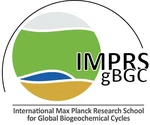Open PhD project: Explore the potential of microorganisms to restore disturbed environment
International Max Planck Research School for Global Biogeochemical Cycles
In cooperation with Friedrich Schiller University Jena (FSU), the Max Planck Institute for Biogeochemistry (MPI-BGC) houses a unique and flexible research program that grants German and foreign students a broad selection of learning opportunities while still maintaining a research focus. The International Max Planck Research School for Global Biogeochemical Cycles (IMPRS-gBGC) offers a PhD program specializing in global biogeochemistry and related Earth system sciences.
Homepage: https://www.bgc-jena.mpg.de/en/imprs
Project description
Previous studies have shown that fungi and bacteria, like streptomycetes, can support plant health and stabilize the soil environment. Here, we want to perform field and laboratory studies to better understand the mechanisms and develop strategies for a more effective application of microorganisms in the field. At the former uranium mining site in eastern Thuringia, radioisotope/metal transport into plant biomass and the impact of soil microorganisms on the prevalent processes are studied with test field sites. Changes induced by bacteria and/or fungi in the field are investigated in microcosm case studies with model species to test the effect of glucans and hydrophobins on growth, soil structure, water transport, water holding capacity or effect of aquaporins on water uptake including mycorrhiza. Using heavy metal adapted fungal strains metal transport in the environment is addressed. The candidate will perform analyses of bioavailability, microbial community analyses and microcosm experiments in addition to field studies.
Working group
The candidate will be part of the Microbial Communication of the Institute of Microbiology at the Friedrich Schiller University, Jena in close collaboration with the Department of Biogeochemical Processes at the Max Planck Institute for Biogeochemistry and the Applied Geology Microbiology at the Friedrich Schiller University.
Requirements
Applications to the IMPRS-gBGC are open to highly motivated and qualified students from all countries. Prerequisites for this PhD project are:
- a Master’s degree in Biogeosciences, Microbiology, or similar subjects
- Experience in (hydro)geology, molecular biology and/or microbiology
- Interest in metal distribution in the environment
- Good oral and written communication skills in English
The Max Planck Society (MPS) strives for gender equality and diversity. The MPS aims to increase the proportion of women in areas where they are underrepresented. Women are therefore explicitly encouraged to apply. We welcome applications from all fields. The Max Planck Society has set itself the goal of employing more severely disabled people. Applications from severely disabled persons are expressly encouraged.
Application deadline for the fully funded PhD positions is August 5th, 2025. Pre-interviews via web conference will be carried out and promising candidates will be invited to take part in our selection symposium (September 30th – October 1st, 2025).
Find out more and apply online: https://www.bgc-jena.mpg.de/en/imprs/career-application
The Max Planck Society is committed to increasing the number of individuals with disabilities in its workforce and therefore encourages applications from such qualified individuals. The Max Planck Society seeks to increase the number of women in those areas where they are underrepresented and therefore explicitly encourages women to apply.

